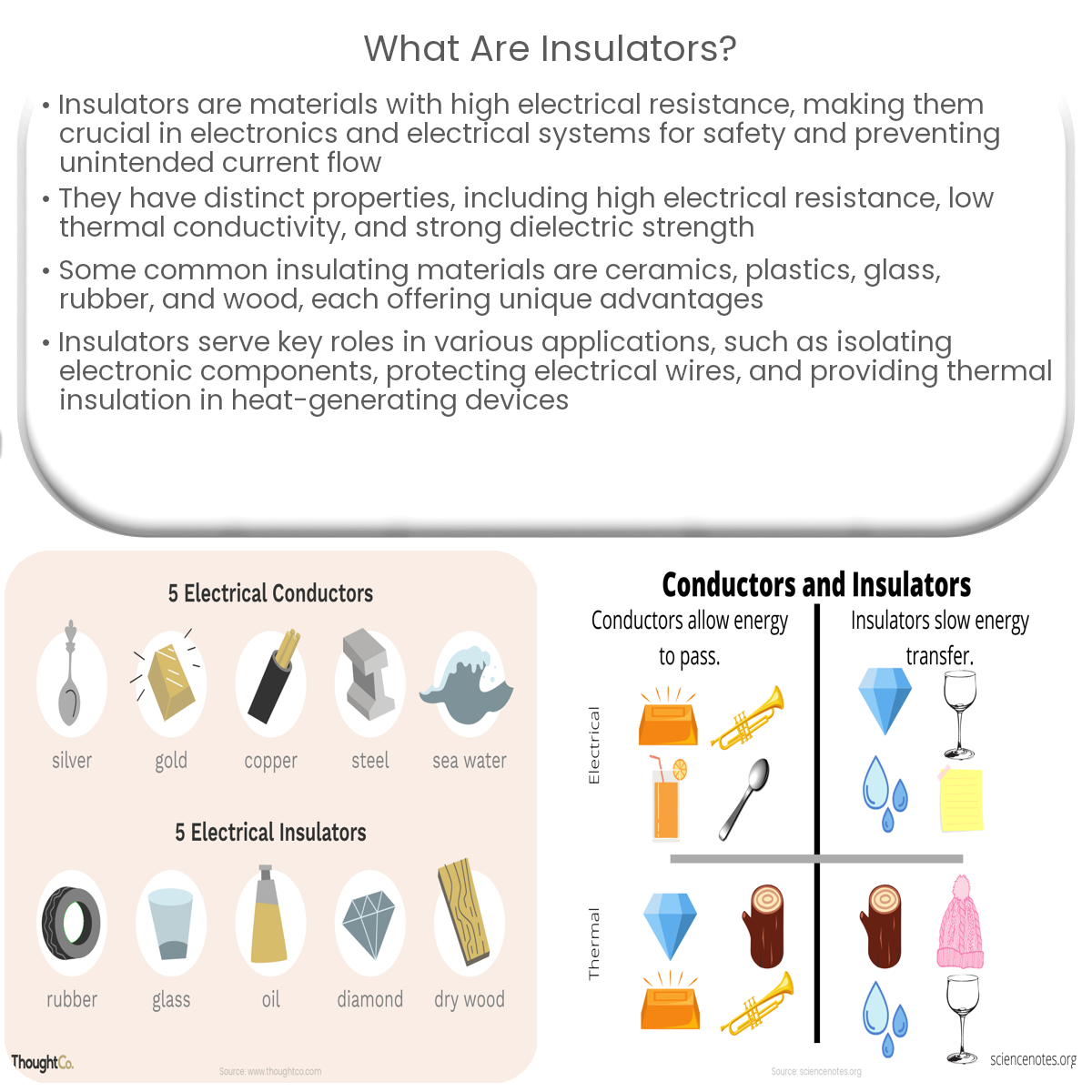Insulators are materials with high electrical resistance, used to prevent unintended current flow and protect users from electric shock.
What are Insulators?
Insulators are materials that exhibit high electrical resistance, hindering the flow of electric current. These materials are essential in numerous applications, particularly in the field of electronics and electrical systems, to prevent the unintended flow of current and protect users from electric shock.
Characteristics of Insulators
Insulators possess certain properties that set them apart from conductive materials. Some of these properties include:
- High electrical resistance: Insulators obstruct the flow of electric current, making them effective in separating electrical components and circuits.
- Low thermal conductivity: Many insulating materials have low thermal conductivity, which helps prevent heat from being transferred between components and their surroundings.
- Dielectric strength: Insulators can withstand high voltages without breaking down, making them suitable for applications requiring electrical isolation.
Common Insulating Materials
There are various types of insulating materials used in different applications, some of which include:
- Ceramics: Ceramic materials like porcelain and alumina offer high electrical resistance and excellent thermal stability, making them ideal for high-temperature applications.
- Plastics: Materials like PVC, Teflon, and polyethylene are widely used as insulators in wires and cables, thanks to their flexibility, durability, and good electrical resistance.
- Glass: Glass is a versatile insulator, offering high resistance to electric current and exceptional dielectric strength, making it suitable for use in various applications.
- Rubber: Rubber is a flexible, durable insulator with good electrical resistance, commonly used for insulation in wiring and electrical devices.
- Wood: Although not commonly used in modern electronics, wood was once a popular insulator due to its availability and electrical resistance properties.
Applications of Insulators
Insulators play a critical role in the safety and functionality of electrical systems and electronic devices. Some common applications include:
- Protecting electrical wires and cables from contact with conductive surfaces
- Isolating electronic components in circuit boards
- Supporting and separating conductive elements in high-voltage systems, such as power lines and transformers
- Providing thermal insulation in devices that generate heat
In conclusion, insulators are essential materials in the world of electronics and electrical engineering, providing safety, stability, and efficiency to various systems and devices.


